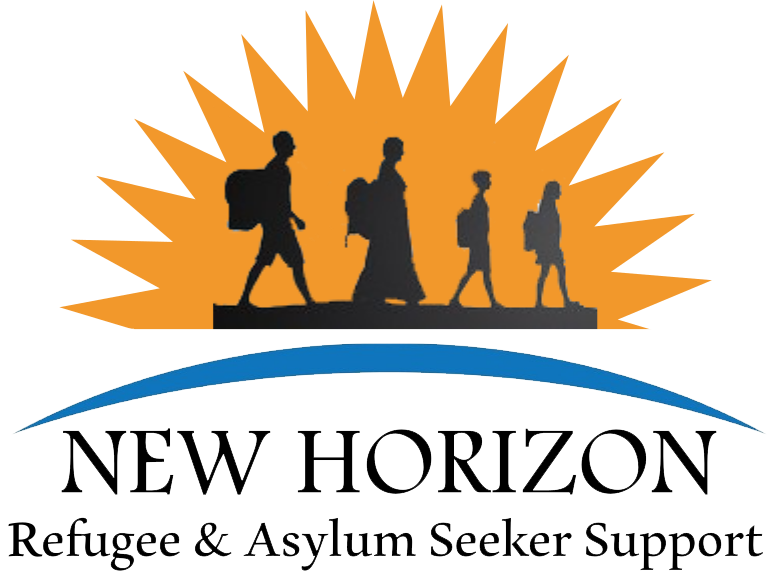Education in Ireland
Primary
There are a large number of primary schools in the Athlone area and asylum-seeking children have gone to all of them.
Children in Ireland do not have to attend school until the age of six, but it is usual for school to start the September following a child’s fourth birthday. Four-year-olds and five-year-olds are enrolled in the junior or senior infant classes.
The curriculum for primary education covers the following key areas:
language, mathematics, social, environment and scientific education, arts education including visual arts music and drama, physical integration, social, personal and health education.
Primary schools are mostly owned by religious communities (or boards of governors) but are State-funded.
Secondary
Second-level education starts for children around the age of eleven. It is provided by different types of post-primary schools. These are secondary, vocational, community and comprehensive schools.
In Athlone there are three secondary schools and one community college.
Secondary schools are privately owned and managed. In most cases the trustees are religious communities or boards of governors.
Vocational schools are established by the State and administered by Education and Training Boards (ETB).
Community and comprehensive schools are managed by boards of management of differing compositions.
Athlone’s second-level schools are:
- Our Lady’s Bower – Retreat road, secondary school for girls
- Marist College – Retreat road, secondary school for boys
- Athlone Community College – Retreat road, community college for both girls and boys
- St Joseph’s College, Summerhill — secondary school for both boys and girls
Second-level education consists of a three-year junior cycle followed by a two-year or three-year senior cycle depending on whether an optional transition year is taken following the junior certificate examination. The junior certificate is taken after three years.
Transition year follows the junior certificate examination. This year is free from formal examinations and allows students to experience a wide range of educational inputs, including work experience. Transition year can be a very useful experience for many students as it allows them to explore their individual skills and interests.
During their final two years in the senior cycle, students take one of three programmes, each leading to a State examination – the established Leaving Certificate, the Leaving Certificate Vocational Programme or the Leaving Certificate Applied programme.
The established Leaving Certificate is the main basis upon which places in universities, institutes of technology and colleges of education are allocated.
The Leaving Certificate Vocational Programme differs from the established Leaving Certificate in placing a concentration on technical subjects and including additional modules which have a vocational focus.
The Leaving Certificate Applied Programme has as its primary objective the preparation of participants for adult and working life through relevant learning experiences. These aim to develop the following areas of human endeavour: spiritual, intellectual, social, emotional, aesthetic and physical.
The Leaving Certificate Applied is not recognised for direct entry to third-level courses but it can enable students to take Post-Leaving Certificate courses.
Tertiary
Third-level, or tertiary, education is made up of a number of sectors. The university sector, the technological sector and the colleges of education are substantially funded by the State. In addition there are a number of independent private colleges.
Athlone Institute of Technology
Athlone Institute of Technology (AIT) offers a wide range of fulltime, part time and evening third-level courses. These courses are offered in the Business School, the School of Engineering, the School of Science and the Department of Lifelong Learning. For details see http://www.ait.ie/
There are seven universities in the republic of Ireland, which are autonomous and self-governing. They offer degree programmes at bachelor, masters and doctorate level.
The technological sector includes institutes of technology which provide programmes of education and training in areas such as business, science, engineering, linguistics and music to certificate, diploma and degree levels. The Department of Education and Skills has overall responsibility for the sector.
The colleges of education specialise in training for first-level teachers. They offer a three-year bachelor of education degree and a postgraduate diploma.
The training of second-level teachers usually involves completing a primary degree in university or other third-level institution followed by a one-year higher diploma in education. In addition, there are colleges of education that specialise in the training of second-level home economics teachers, teachers of religion and physical education.
Asylum-seeking children who have been in Irish secondary education for five years may be eligible for admission to third-level education on the same basis as Irish-born children. Other asylum seekers are not prohibited from attending third-level courses but they may be asked to pay full foreign fees for the course.
